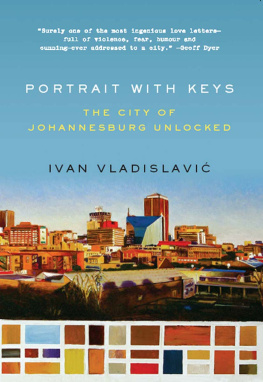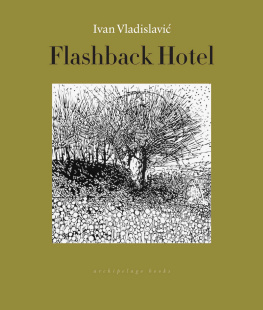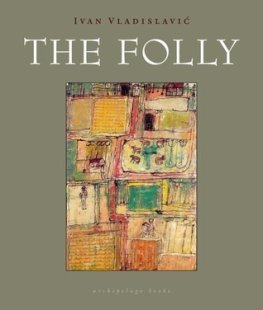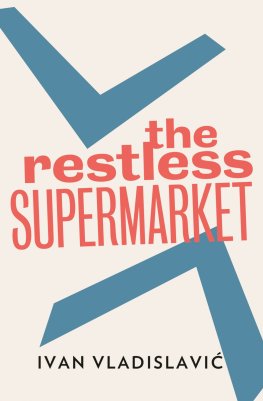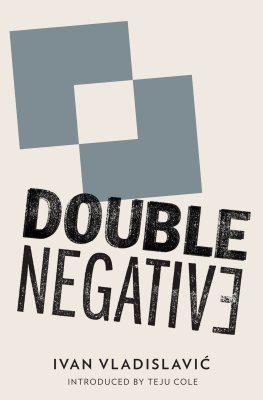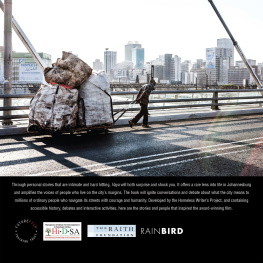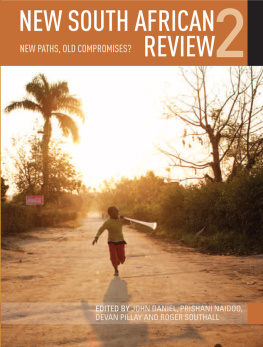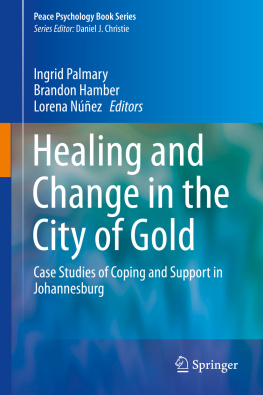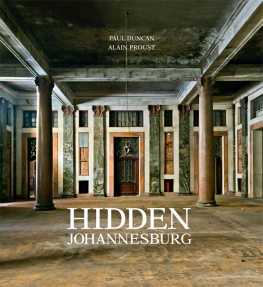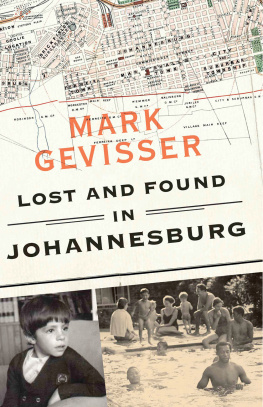Acclaim for Portrait with Keys
Winner of the South African Sunday Times
Alan Paton Non-Fiction Prize
Winner of the University of Johannesburg Prize
Longlist finalist for the Warwick Prize, UK
Portrait with Keys knocked me out. It has Vladislavcs maverick take on the world and combines a warm and insightful view of Johannesburg with clever irony.
Zoe Wicomb
If Italo Calvino had grown up in Joburg and experienced both apartheid and its aftermath, this is the kind of book he would have been proud to have written.
Geoff Dyer
Joburg alarms and amazes. Guns, gold and sheer bloody glitz. For those, and you can count me in, who think it the greatest African city south of Cairo, Vladislavc has done us proud. He has celebrated the city in sharp and lovely images.
Christopher Hope
Among the best South African literature in years. There is anovelty to his very minting of language into image that matches the perpetual, compulsive start-from-scratch ethos of Joburg that makes his book an instant, must-read classic.
Mark Gevisser, The Sunday Independent (Johannesburg)
Vladislavc is a rare, brilliant writer. His work eschews all cant. Its sheer verve, the way it burrows beneath ossified forms of writing, its discipline and the distance it places between itself and the jaded preoccupations of local fiction, distinguish it.
The Sunday Times (Johannesburg)
Ivan Vladislavc writes of Johannesburg as a frontier city, a place of contested boundaries where territory must be secured and defended or it will be lost. But this isnt just a piece about alarmed houses and razor wire-topped fences. Theres wildlife, together with violent poachers; and scenic waterways and lakes, only occasionally despoiled by bodies. Its a passionate account by a man who loves his city, shocking because it so embraces the things most people try to avoid thinking about. This collection has the crackle of authenticity about it.
Tom Boncza-Tomaszewski, The Independent on Sunday
Ivan Vladislavc has written a wonderful book about Johannesburg. For me it has been like reading an exceptionally perceptive reviewer on a play or a book I have loved, a reviewer who articulates brilliantly what I have only half perceived. What Vladislavcs book has done is to touch minutely, sensuously, poetically, ironically and exactly on this strange, utilitarian townand he has also recorded the astonishing variety of people whose lives have been transformed, not always happily, by the changes of the last fifteen years. This is a love letter to Johannesburg and a truly marvellous piece of work.
Justin Cartwright, Literary Review
[A] peculiar tension, between despair and delight, animates the city. In Portrait with Keys , Vladislavc unlocks it beautifully.
Colin Murphy, Irish Times
Vladislavcs acute intelligence and unfussy style make this quite a find.
Jonathan Gibbs, Metro
An outstanding writer and an intriguing subject.
Sue Baker, Publishing News
Vladislavc writes beautifully about the city he knows inside out, surveying the ways in which it has changed since the end of apartheid.
Caroline Sanderson, Bookseller
Reading Portrait with Keys made me want to walk the city, explore it underfoot rather than in the usual drive-by fashion. The book invites this desire to interact with the city and is an attempt by an intelligent and aware writer to address issues facing todays novelists. I (can) wander through the pages of Portrait with Keys and rediscover something about the city, its people and the way we experience life that would help keep the wind at bay.
Tynton Smith, Sunday Times (London)
Vladislavc seeks the poetry of the city he has known and loved for 30 years. At his best, Vladislavc transcends that for moments of mysticism.
Ross Leckie, The Times (London)
Portrait with Keys
the city of Johannesburg unlocked
Ivan Vladislavi


W.W. Norton & Company
New York London
Copyright 2006 by Ivan Vladislavic
Originally published in South Africa under the title Portrait with Keys: Joburg & what-what
All rights reserved
For information about permission to reproduce selections from this book,
write to Permissions, W.W. Norton & Company, Inc.
500 Fifth Avenue, New York, NY 10110
Library of Congress Cataloging-in-Publication Data
Vladislavic, Ivan, 1957
Portrait with keys: the city of Johannesburg unlocked/Ivan Vladislavic.1st American ed.
p. cm.
Originally published in South Africa under the title
Portrait with keys: Joburg & what-whatT.p. verso.
Includes bibliographical references.
ISBN: 978-0-393-07151-1
1. Johannesburg (South Africa)Description and travel. 2. Johannesburg (South Africa)Social life and customs. 3. Johannesburg (South Africa)Social conditions. 4. Social changeSouth AfricaJohannesburg. 5. Vladislavic, Ivan,
1957TravelSouth AfricaJohannesburg. 6. Vladislavic, Ivan, 1957
Homes and hauntsSouth AfricaJohannesburg. I.Title.
DT2405.J654V535 2009
968.22'106dc22
2009005787
W.W. Norton & Company, Inc.
500 Fifth Avenue, New York, N.Y. 10110
www.wwnorton.com
W.W. Norton & Company Ltd.
Castle House, 75/76 Wells Street, London W1T 3QT
for
Tim Couzens
Memory takes root only half in the folds of the brain: half's in the concrete streets we have lived along.
Lionel Abrahams
Contents
Point A
Haunted places are the only ones people can live in.
Michel de Certeau
When a house has been alarmed, it becomes explosive. It must be armed and disarmed several times a day. When it is armed, by the touching of keys upon a pad, it emits a whine that sends the occupants rushing out, banging the door behind them. There are no leisurely departures: there is no time for second thoughts, for taking a scarf from the hook behind the door, for checking that the answering machine is on, for a final look in the mirror on the way through the hallway. There are no savoured homecomings either: you do not unwind into such a house, kicking off your shoes, breathing the familiar air. Every departure is precipitate, every arrival is a scraping-in.
In an alarmed house, you awake in the small hours to find the room unnaturally light. The keys on the touch pad are aglow with a luminous, clinical green, like a night light for a child whos afraid of the dark.
How bad a man was Scrooge, that model of solitary mean-spiritedness?
Nobody ever stopped him in the street to say, with gladsome looks, My dear Scrooge, how are you? When will you come to see me? No beggars implored him to bestow a trifle, no children asked him what it was oclock, no man or woman ever once in all his life inquired the way to such and such a place, of Scrooge.
The unequal exchange of directions is one of the most touching relations possible between people in the city, and so it is a measure of Scrooges inhumanity that he was never once, in all his life, engaged in it. Asking for directions, city people, who set great store by their independence and hard-won knowledge of the streets, who like to think that they know their way around, declare their vulnerability; giving directions, they demonstrate a capacity for dealing kindly and responsibly with a life put in their hands by fate.
In the countryside it is different. Strangers and locals stand in a simpler relationship to one another. Strangers are few and far between, and they are therefore less threatening rather than more so, as one might suppose. Locals know the world around them like the backs of their hands, as the saying goes, and landmarks are more conspicuous and easier to describe. In any event, a country person (if he did not have the whim to send you on a wild goose chase) might think nothing of walking along with you, or driving ahead, to show you the way.

